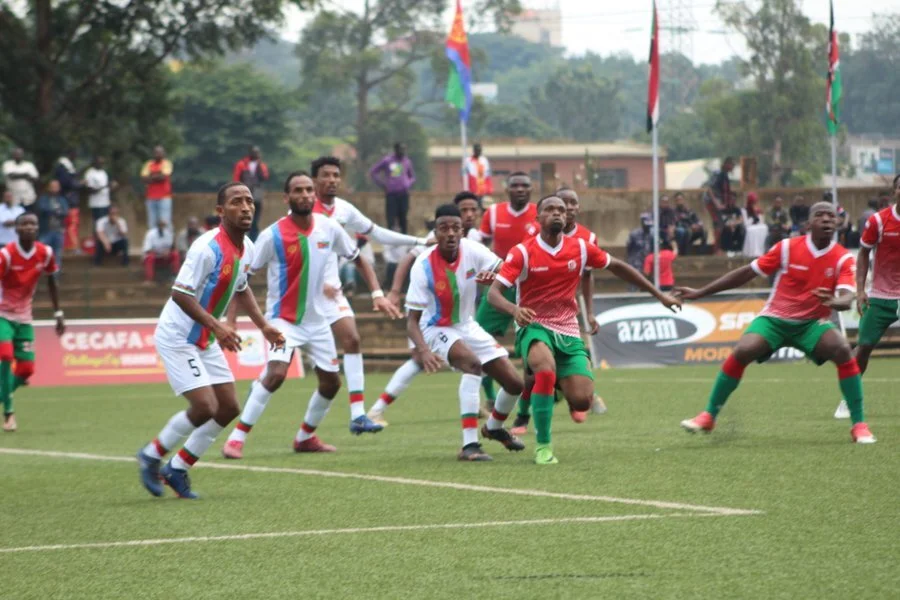Ten years ago, the Eritrean national team won their last official game.
They played against Somalia in the CECAFA Cup group stage and won 3-1. In that tournament, which is the Central and East African major tournament for national teams, Eritrea reached the quarterfinals. They were thrashed by Tanzania 4-0 and ended their journey.
A few days later, they encountered a problem. Twelve players didn't arrive on the flight from Nairobi to Eritrea. There was no doubt what happened to these players. They were hiding in the city for almost two weeks until they officially received a refugee status by the UNHCR.
After an unstable decade, Eritrea is back to the CECAFA Cup. This time, they have a chance to be the biggest surprise in the tournament's history.
In 1993, after a 30-year war with Ethiopia, the UN has organized an independence referendum in Eritrea. The new country has declared its independence on May 24, and since then, there is only leader in the country, Isaias Afwerki. The President of Eritrea is ruling a dictatorship. In the ongoing conflicts with Ethiopia, he leads mass military recruitments, sometimes without enforcing a minimum drafting age, and the soldiers are serving the army for an unlimited period of time. Additionally, the country suffers from a humanitarian crisis, people don’t have any freedom of speech or religion, and the citizens find themselves as asylum seekers.
The unstable situation in the country is also affecting local football. The domestic league and teams are facing difficulties, the national team is barely playing, and in recent years, Eritrea dropped to the last place among the African teams in FIFA Ranking. Another issue in the previous two decades is that players occasionally attempt to escape and seek asylum when the team plays abroad, a familiar situation for other national teams, such as Cuba.
As the Eritrean FA was worried about that problem, the national team didn't enter most of the recent international tournaments. For example, Eritrea refused to participate in the 2010 World Cup qualifiers, which were also the 2010 Africa Cup of Nations qualifiers. The FA has requested from the players a $7000 surety for every travel. It equals to five monthly salaries in Eritrea.
Recently, Eritrea has found a solution for this problem. The new national manager, Alemseged Efrem, is looking for players of Eritrean descent that were born or lived in Europe. The players that were called up to his debut squad in 2015 were born in England and Sweden, and the most known name was Henok Goitom, who played in Spain and has been part of the Swedish U-21 national team. In the squad for the recent 2022 World Cup qualifiers matches, the majority of the players were based abroad. Among them, you could find Mohammed Saeid, who plays for the Swedish side Sirius, and Ezana Kahsay, who plays for his college team in the USA.
Even with the strengthened squad, Eritrea is still looking for improvements. They have lost twice against Namibia and failed to qualify for the 2022 World Cup qualifiers second stage. They also didn't register for the 2021 Africa Cup of Nations, which means that they wouldn't participate in the qualifiers for the seventh time in a row.
Their last chance to show their skills was in the 2019 CECAFA Cup. Eritrea didn't take part in the previous tournaments due to various reasons. One of them was the previously mentioned worry of a potential player escape. The other reason was political, such as when they refused to play in Ethiopia in 2015. Now, their return to the international football drew attention, but they haven’t called up their best possible squad. As the matches were not played in an official international break, all teams had to used local-based players.
Their comeback match was against Burundi, who only a few months ago made its Africa Cup of Nations debut. Although they were missing some of their best players, such as Saido Berahino, Burundi was a clear favorite to win the match. But amazingly, In first half additional time, Robel Kidane scored the only goal for the big upset. After ten years, Eritrea has finally won a match.
For minnows, wins like these could be just a coincidence. But Eritrea shows that they can do more than that. They won again, a 3-0 against Djibouti, and drew 0-0 on the last matchday against Somalia. Those results granted The Red Sea Boys a place in the semifinals, a stage they reach for the first time since 1994.
Unfortunately for the national team, these matches would not be recognized for the FIFA rankings and Eritrea will remain rock bottom. Manager Efrem can still be proud of his players. "I am glad that the majority of the players making it to the semifinal are part of the U-20 team," he said after the draw against Somalia, referring to the new players in his squad.
Eritrea has already made greater results than expected. Maybe it's the beginning of a new era?

